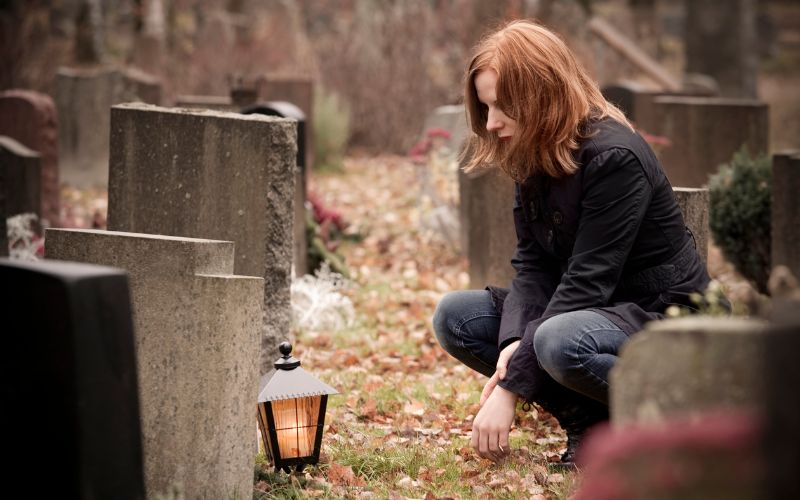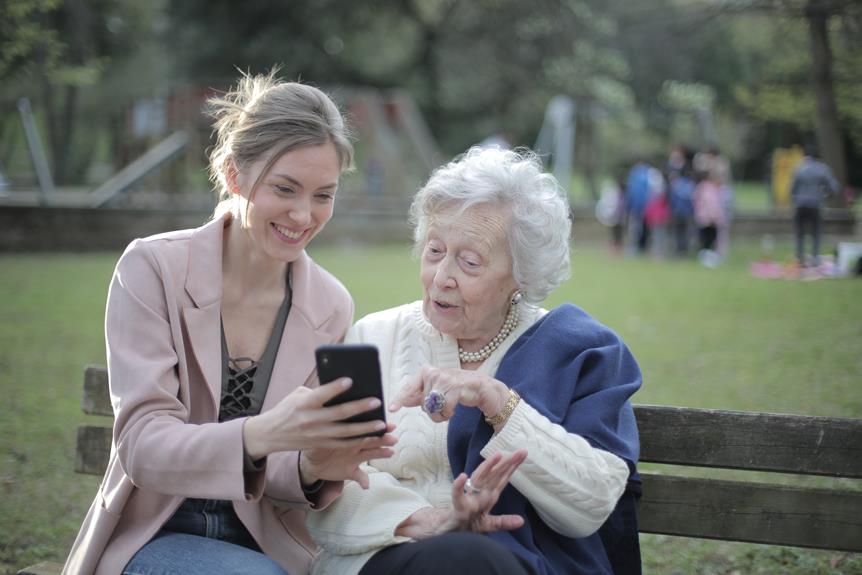Losing a loved one is an emotionally challenging and universally experienced life event, leaving those left behind to embark on a difficult journey of grief and mourning.
This process often includes making burial arrangements that respectfully honor the deceased while comforting the bereaved.
In this blog post, we will explore the stages of grief, various burial options, and how to cope through self-care strategies, seeking support from others, and finding healthy ways to manage emotions during this trying time.
Understanding Grief And Mourning
The grieving process can bring an overwhelming mix of emotions, including denial, anger, guilt, and eventually acceptance of the loss; coping strategies such as seeking support from family or friends and joining a grief support group can help individuals navigate this difficult time.
The Grieving Process And Coping Strategies
Experiencing the loss of a loved one is an incredibly difficult event, and navigating the grieving process can be overwhelming. Grief often moves through stages like disbelief, anger, guilt, and acceptance.
It’s important to understand that everyone grieves differently, and there isn’t a “right” way to do it.
Numerous coping strategies can help individuals navigate this challenging time, including focusing on self-care through exercise, proper nutrition, or restful sleep; practicing mindfulness techniques like meditation or deep breathing exercises to manage stress; finding support groups either online or in-person where people share their experiences with grief; seeking professional therapy if needed; engaging in hobbies that bring joy and happiness; setting goals for personal growth after experiencing loss.
For example, John struggled with the sudden death of his wife, Sarah but found comfort when he started attending grief support group meetings at his local community center.
This gave him an outlet to express his emotions and connect with others facing similar challenges. Over time John began exploring new hobbies, such as amateur photography and volunteering at a local animal shelter.
In conclusion, bereaved individuals must identify healthy coping strategies that work best for them throughout their grieving process – be it connecting with peers who understand similar emotions they’re going through via support groups or seeking professional help when necessary – ultimately fostering resilience amidst adversity brought forth by losing someone dear.
The Importance Of Seeking Support For Bereaved Individuals
Losing a loved one can be an overwhelming experience, and the following grieving process can be difficult to navigate alone. Seeking support during this time is crucial for individuals coping with loss.
Support can come from many sources, including family members, friends, counselors, and support groups.
There are also resources available online or by phone that can provide additional guidance and support. It is important to remember that seeking help is not a sign of weakness; it shows strength in recognizing when you need assistance navigating the often-challenging grieving process.
Choosing The Right Burial Arrangements For Comfort
Choosing the right burial arrangements for your loved one can provide comfort during a difficult time. From traditional options to personalized choices, learn more about which option may be right for you and your family.
Traditional Burial Options
Traditional burial options have been used for centuries and are still popular today. Here are some options to consider for burying your loved one:
1. Full Body Burial: This is the most traditional option, where the deceased person’s body is buried in a casket.
2. Above-Ground Burial: Mausoleums and tombs provide above-ground burial options that offer additional protection to the remains.
3. Green Burials: These burials focus on being environmentally friendly by using biodegradable caskets or shrouds and avoiding embalming chemicals.
4. Family Plots: Many families choose to reserve a plot of land at a cemetery where multiple family members can be buried together.
Discussing these options with your loved ones and/or funeral director is important to determine which type of traditional burial best suits your needs and preferences.
Cremation Options
Cremation is an increasingly popular option for end-of-life arrangements. Here are some things to consider when choosing cremation:
- Cremation can be less expensive than traditional burial options, making it a more practical choice for some families.
- With cremation, there are more options for what to do with the ashes. They can be scattered, kept in an urn, or even turned into jewelry.
- Some people choose cremation because it is more eco-friendly than burial since it does not involve embalming fluids or caskets taking up space in a cemetery.
- While some religions prohibit or discourage cremation, others have no restrictions.
- It’s important to consider cultural and religious beliefs when considering cremation.
Personalized Options
Personalized burial arrangements offer a unique way to honor the life of a loved one. Here are some options to consider:
- Customized caskets or urns with personal engravings or designs that reflect the interests and personality of the deceased.
- Themed funeral services include a sports-themed service for a devoted athlete or a military-themed service for a veteran.
- Creative memorial displays, such as photo collages, scrapbooks, or memory tables showcase items that represent important moments in the person’s life.
- Unique venues for services, such as outdoors at their favorite park, beach, or scenic location.
- Planting trees or dedicating benches to remember the loved one in their favorite location.
Personalizing burial arrangements can help provide comfort and closure to those left behind as they celebrate the life of their loved ones.
Pre-Planning Arrangements For Peace Of Mind
Making funeral arrangements for a loved one can be daunting and emotionally taxing. That’s why it is important to consider pre-planning options as part of the end-of-life planning process.
Pre-planning allows individuals to make decisions about their final arrangements in advance, giving them peace of mind that everything will be taken care of according to their wishes.
Pre-planning also relieves the burden from family members left behind, allowing them to focus on grieving and healing instead of worrying about burial arrangements.
Some pre-planning options may include selecting a casket or urn, choosing burial or cremation services, and arranging for a service or gathering at a funeral home or other location.
Supporting Others Through Burial Arrangements
Offering emotional support during the grieving process is crucial, as it helps the bereaved person through this difficult time by letting them know that they are not alone in their pain.
Providing Emotional Support During The Grieving Process
One of the most important things you can do for someone who is grieving is to offer emotional support during their mourning process. This could mean simply offering a listening ear or a shoulder to cry on, or it might involve assisting with funeral arrangements and other practical needs.
You can also help by encouraging healthy grieving behaviors like talking about feelings and emotions, practicing self-care activities like exercise, meditation, or journaling, and seeking professional counseling if necessary.
Remember that grief is different for everyone, so what works for one person may not work for another. However, remember these key points when offering emotional support:
- Be patient and empathetic.
- Acknowledge their loss.
- Provide comfort in small ways.
- Check-in regularly, but don’t intrude on personal space.
- Encourage them to talk openly about their feelings without judgment.
Encouraging Healthy Grieving Behaviors
It’s important to encourage healthy grieving behaviors in ourselves and those we love who are dealing with loss. Here are some ways to do that:
- Allow yourself time and space to grieve: Feeling sad, angry, or lost after a loved one passes away is okay. Take the time to process your emotions and healthily express them.
- Seek support: Don’t be afraid to contact friends, family, or a professional for help during this difficult time. Talking about your feelings can help ease the pain of grief.
- Practice self-care: Make sure you care for yourself physically and emotionally. Eat healthy foods, exercise regularly, get enough sleep, and engage in activities that bring you joy.
- Be patient with yourself: Grieving is a process that takes time. Don’t rush yourself or expect that you’ll feel better overnight.
- Celebrate the life of your loved one: Remember the good times and celebrate their life through photos, stories, or creating a memorial in their honor.
- Find meaning in the loss: While it may seem impossible initially, try to find meaning or purpose in your loved one’s passing. This could mean volunteering for a cause they believed in or making positive changes in their own life.
By encouraging healthy grieving behaviors, we can begin to heal from our loss while still cherishing the memory of our loved ones.
Resources For Additional Help
Dealing with the loss of a loved one can be overwhelming, and seeking additional help can assist in the bereavement process. Here are some resources that may be helpful:
- Grief counseling services support individuals who have experienced a loss and are struggling with emotions.
- Support groups bring together individuals who have experienced similar losses, providing an opportunity for connection and understanding.
- Hospice organizations offer patients and families end-of-life care and grief support.
- Mental health professionals, such as therapists or psychologists, can provide guidance and support throughout the grieving process.
- Religious organizations often offer comfort and spiritual guidance during times of grief.
- Online resources such as grief forums, informational websites, and online therapy sessions can also be beneficial.
Remember, it is important to seek help when needed and know that support is available for those who are grieving.
Coping With Long-Term Grief And Mourning
To cope with long-term grief and mourning, individuals should prioritize self-care by seeking physical and emotional support from loved ones, finding healthy outlets for their emotions such as exercise or creative activities, and seeking professional help through counseling or therapy.
Self-Care Strategies For Physical And Emotional Health
Coping with the loss of a loved one can take a toll on both physical and emotional well-being. Here are some self-care strategies to help you during this challenging time:
- Take care of your physical health by getting enough sleep, eating nutritious foods, and exercising regularly.
- Engage in activities that bring you joy and comfort, such as walking in nature or spending time with friends and family.
- Write down your feelings in a journal or talk to someone you trust about your feelings.
- Seek professional help if you need it, such as grief counseling or therapy.
- Practice mindfulness techniques like meditation or deep breathing to ground yourself and ease anxiety.
- Consider joining a support group to connect with others who are also coping with the loss of a loved one.
- Allow yourself to grieve and take time off work if needed.
- Remember that there is no right or wrong way to grieve; everyone processes loss differently.
It’s important to prioritize self-care during this difficult time so that you can begin to heal and move forward at your own pace.
Finding Healthy Ways To Cope With Emotions
Grieving can be a long and complicated process, but finding healthy ways to cope with the emotions that come with losing a loved one is essential. One of the most effective ways to do this is by finding support from friends, family members, or grief counselors who can provide emotional backing during difficult times.
It’s important to remember that everyone handles grief differently, and there is no right way to grieve. However, seeking professional help when needed is critical as the unexpected death of a loved one may lead to severe psychological effects on individuals left behind.
Seeking Professional Help When Needed
You may find that the mourning process doesn’t become easier as time passes. You might feel stuck in a particular stage or unable to move forward with your emotions after losing a loved one.
This is when seeking professional help can be beneficial.
It’s important to remember that asking for help does not mean you are weak; it means you recognize the significance of your feelings and value taking care of yourself during this difficult period.
In addition to therapy, many other resources are available, such as support groups, online forums where you can connect with others going through similar experiences, or reading books about dealing with loss.
Conclusion
Coping with the loss of a loved one can be an overwhelming experience. Healing and moving forward after the funeral is possible through understanding grief and mourning, choosing the right burial arrangements for comfort, supporting others during this difficult time, and finding healthy ways to cope with long-term grief.
Grief and mourning require patience, understanding, support from others, and, most importantly, a willingness to open up and express your emotions. Taking care of ourselves when experiencing loss is essential to the healing process, so self-care during this difficult period.
It’s okay not to be okay, and it’s important to remember that you will get through this with time.


